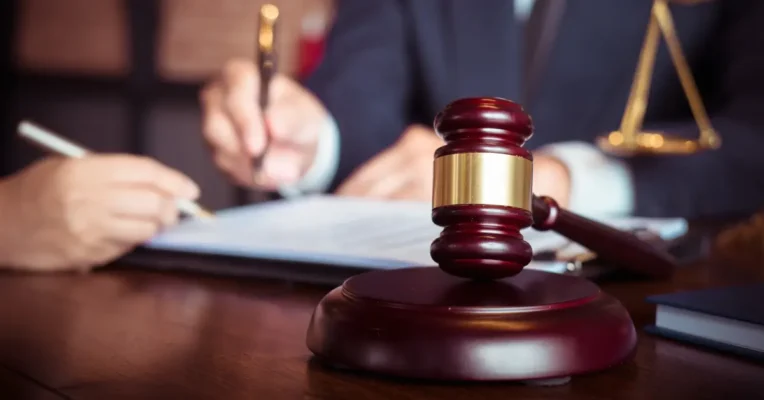Probate is a legal process that occurs after someone passes away, involving the verification and management of their estate according to their will or local law if no will exists. The necessity for one is to ensure that a deceased person’s assets are distributed correctly to their heirs or designated beneficiaries. This process helps to resolve any debts and taxes owed by the deceased’s estate, making it a crucial step for those left behind. Without probate, the rights to an estate can become unclear, leading to potential disputes among potential inheritors. This makes finding a local probate lawyer essential for guiding families through the complexities of estate management and ensuring all legal requirements are met.
Key Scenarios Requiring Probate
Validating a Will Through Court Supervision
When a will is presented to a court, one of the primary functions of probate is to authenticate it and confirm it as the true last testament of the deceased. This involves a court process where witnesses may be called to testify to the will’s validity. Key situations for probate often include instances where the will’s authenticity is in question due to potential forgery or undue influence over the deceased when the will was made. A probate attorney free consultation can guide how these issues might be addressed in court.
Handling Intestate Estates Without a Will
In cases where an individual dies without a will, known as intestate, probate is essential to determine how the assets are divided according to state laws. An estate lawyer for will disputes can be invaluable here, as intestacy laws vary significantly by state and can complicate the distribution process, especially in large or blended families. The court appoints an administrator to handle the estate, similar to an executor, whose responsibilities include gathering assets and distributing them in compliance with state laws.
Managing Real Estate Assets Without Joint Ownership
Probate is necessary to legally transfer ownership of real estate that the deceased solely owned to the heirs. This scenario becomes complex without a clear will directing the asset’s disposition. Real estate properties often represent significant value, and managing the transfer requires careful legal oversight to ensure all property taxes and potential liens are resolved. Probate for real estate assets involves evaluating the property, paying necessary debts, and transferring the title under a probate court’s supervision, often necessitating a probate lawyer’s expertise.
Resolving Disputes Over Estate Distribution
Disputes over how an estate is distributed can arise, especially among surviving family members with conflicting claims or expectations. Legal help for contested estates becomes critical in such probate scenarios. A court may need to interpret the will or mediate between parties to reach a resolution that aligns with legal standards and the deceased’s wishes. This is where hiring the best lawyer for estate planning comes into play, offering mediation and litigation strategies to defend the client’s rights within the probate process.

The Probate Process for Estates
Filing the Will and Appointing an Executor
The initial steps in the probate laws for family estates involve filing the deceased’s will with a probate court and formally appointing an executor or administrator. This role is pivotal, as the executor manages the estate’s settlement according to the will’s directives and state laws. This part of the process ensures a legal acknowledgment of the person’s authority to act on behalf of the deceased’s estate, which is crucial for accessing bank accounts, transferring assets, and managing estate affairs
Inventorying Assets and Identifying Debts
A critical task for the executor is to compile a comprehensive inventory of the deceased’s assets. This list includes bank accounts, securities, real estate properties, and personal belongings. Each asset must be appraised to determine its fair market value. Concurrently, the executor must identify all debts the estate owes, ranging from mortgages to credit card bills. This step is vital to clarify the estate’s financial standing before asset distribution, ensuring that beneficiaries receive their fair share as dictated by the will or state law. Executors often engage a lawyer for probate to assist with asset management and valuation complexities.
Notifying Creditors and Settling Outstanding Obligations
The probate court typically requires public notice so creditors can make claims against the estate. This process is critical in ensuring all financial responsibilities are met before any distribution of assets. Here’s a detailed explanation of the steps involved:
- Notice Publication: Executors are legally required to publish a notice in local newspapers, alerting creditors to the decedent’s death and the commencement of probate proceedings. This public announcement ensures that all potential creditors are allowed to submit claims against the estate within a legally defined timeframe. The notice must include essential details, such as the executor’s contact information and deadlines for submitting claims. By adhering to this procedure, the executor demonstrates due diligence and minimizes the risk of future disputes over unpaid debts.
- Claim Evaluation: Once submitted, the executor must thoroughly evaluate each claim to determine its validity. This process often involves cross-referencing contracts, invoices, and any supporting documentation the creditor provides. Executors must also ensure that claims align with the decedent’s legal obligations. Fraudulent or inaccurate claims are rejected, and legitimate ones are prioritized for payment. A careful review safeguards the estate from unnecessary payouts and ensures that only rightful creditors are compensated.
- Debt Settlement: After validating claims, the executor uses the estate’s assets to settle debts. State laws typically dictate a priority payment order, with secured debts and administrative costs, such as funeral expenses, taking precedence. If the estate’s funds are insufficient to cover all obligations, the executor must follow legal guidelines to allocate payments proportionally. Effective debt settlement ensures financial responsibilities are met in compliance with state laws and protects the executor from potential liabilities.
- Legal Disputes: Disputes over creditor claims or debt amounts may arise, requiring the executor to resolve them through legal channels or negotiations. These conflicts can prolong the probate process, making it essential for the executor to collaborate with a probate attorney to address disputes efficiently. By resolving these issues promptly and fairly, the executor upholds the estate’s integrity and facilitates a smoother transition toward asset distribution.
- Final Reporting: Once all debts are settled, the executor must prepare a detailed final report for the probate court. This document outlines the claims reviewed, debts paid, and the overall handling of the estate’s financial obligations. Submitting this report demonstrates the executor’s compliance with legal requirements and marks the conclusion of the debt settlement phase. It also provides transparency for beneficiaries, ensuring they understand how the estate’s assets are managed.
By diligently addressing creditor notifications and debt settlements, executors ensure that the estate is managed responsibly and in accordance with the law. This crucial process not only protects beneficiaries from future claims but also upholds the decedent’s financial legacy.
Distributing Remaining Assets to Beneficiaries
Once all debts and taxes have been settled, the executor can distribute the remaining estate assets among the heirs and beneficiaries as specified in the will. It might involve transferring titles, distributing funds, and handing over personal belongings. In some instances, if the will is contested or any disputes arise during this phase, additional legal proceedings may be required, which could delay the distribution process. Beneficiaries are advised to stay informed and possibly seek independent legal advice for contested estates to ensure their interests are adequately protected throughout this phase.
Legal Requirements for Probate
Thresholds for Small Estate Exemptions by State
Each state has specific thresholds determining whether an estate can bypass the full probate process through small estate exemptions. These exemptions are designed to simplify and speed up the asset distribution for estates that fall below a certain value, making it easier for beneficiaries to settle affairs without undergoing the traditional, more lengthy probate process for estates. The threshold value varies widely depending on state laws and typically involves filling out simplified forms and providing a death certificate and other documentation without formal court intervention.
Simplified Probate for Low-Value Estates
For estates that are small but still require some form of probate, many states offer a simplified version of the process. A streamlined procedure is less cumbersome than traditional probate and often resolves quicker, reducing legal fees and court costs. It usually involves less paperwork and fewer court appearances, making it a viable option for executors looking to settle estates efficiently.

Alternatives Like Trusts and Transfer-on-Death Deeds
Many individuals opt for alternatives such as trusts and transfer-on-death deeds to avoid the complexities and costs associated with probate. Trusts, particularly revocable living trusts, allow individuals to manage their assets during their lifetime and transfer ownership smoothly to beneficiaries upon their death, bypassing the probate court entirely. Transfer-on-death deeds work similarly for real estate assets, enabling direct transfer to a named beneficiary without probate. These options not only facilitate quicker distribution of assets but also provide privacy that is not available through the public probate process.
How to Find a Probate Lawyer
Tips for Locating Local Probate Attorneys
Start by requesting referrals from friends or family who have undergone similar legal proceedings. Local bar associations also provide directories of attorneys specialized in probate and estate planning. Online reviews and lawyer rating websites can offer insights into the reputations and client satisfaction rates of nearby lawyers. It’s crucial to choose someone familiar with your state’s specific probate laws to ensure accurate and efficient handling of your legal needs.
Resources for Affordable or Free Consultations
Fortunately, there are resources available to find affordable probate lawyers. Some attorneys offer free initial consultations, which can help you understand the potential costs and scope of required legal work without any upfront investment. Legal aid societies and university law clinics also provide services at reduced fees or sometimes free, particularly for those with limited financial resources.
What to Look for in an Estate Planning Lawyer
A skilled attorney can provide guidance through complex legal processes, offer personalized advice, and ensure your estate plan adheres to applicable laws. Below are key factors to consider:
- Specialization and Experience: It’s important to verify their experience handling cases similar in complexity to yours, whether your estate includes significant assets, multiple properties, or unique considerations like business succession. Lawyers with a proven track record in estate planning can anticipate potential challenges and craft a plan that addresses your needs comprehensively. Specialization minimizes the risk of errors and ensures your estate plan is as effective and enforceable as possible.
- Communication Skills: Legal jargon can be overwhelming, but a skilled estate planning lawyer simplifies complex concepts, ensuring you fully understand each aspect of your plan. Clear and effective communication fosters trust and confidence in their guidance. Look for an attorney who takes the time to answer your questions, provides detailed explanations, and listens to your concerns. Good communication ensures a collaborative approach, allowing you to make informed decisions about your estate.
- Approach to Handling Cases: Estate planning lawyers differ in their approaches, and finding one that matches your preferences is essential. Some offer hands-on assistance, guiding you through every step, while others focus on specific process aspects. If you value personalized attention, seek an attorney who emphasizes collaboration and detailed planning. Alternatively, if you require help with a specific issue, such as setting up a trust or minimizing taxes, ensure the lawyer has expertise in that area. Aligning their approach with your needs ensures a smoother planning experience.
Choosing an estate planning lawyer requires careful consideration of their expertise, communication style, and client satisfaction. By focusing on these critical factors, you can find a professional who not only simplifies the estate planning process but also ensures your legacy is protected and your wishes are honored.
Steps to Minimize Probate Complications
Creating Clear and Legally Sound Wills
A well-drafted will provides detailed instructions on the distribution of assets and can significantly reduce the chances of disputes among beneficiaries. It’s crucial to work with the best lawyer for estate planning who can ensure that the will complies with state laws and accurately reflects your wishes. It not only simplifies the probate process but also provides peace of mind, knowing that your assets will be managed according to your preferences.
Utilizing Trusts for Asset Management
Trusts are a valuable tool for estate management, allowing individuals to maintain control over their assets while alive and ensuring a smooth transition upon their death. By placing assets in a trust, you can avoid the probate process entirely, as the assets within the trust can be passed directly to the beneficiaries without court intervention. This strategy not only speeds up the distribution process but also maintains privacy, as trust documents are not part of the public record.

While probate can be a complex and emotionally taxing process, understanding its necessity and preparing adequately with expert legal help can ease the burden. By proactively managing estate planning and engaging with competent legal professionals, you can ensure that the probate process is handled efficiently and with the utmost respect for the deceased’s wishes. This not only protects the estate’s assets but also preserves family harmony and upholds the legacy of the deceased with integrity and respect.

